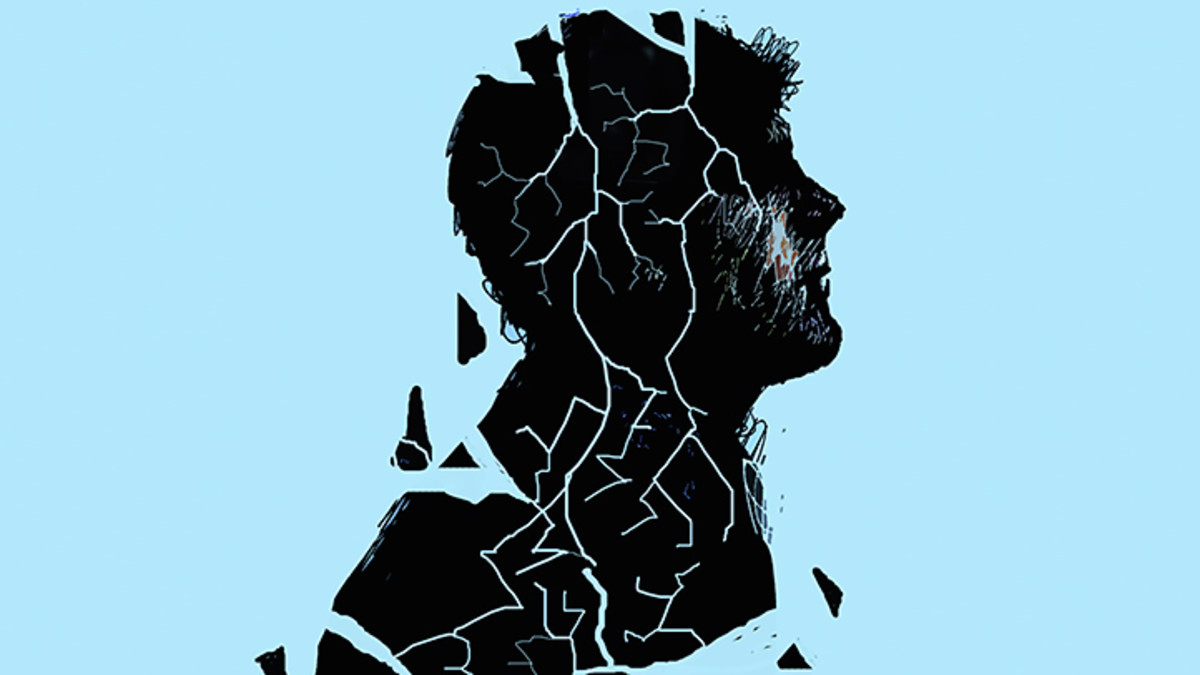Ways to deal with depression and Negative thinking
Depression and negative thinking
Negative foreboding thoughts could cause people to get into depression, chemical imbalance or not. Depression is the feeling of sadness combined with a strong sense of hopelessness and despair. If we can take control over our thoughts, our lives would be largely under control and take the direction we want it to go. All of us go through intense negative emotions at certain periods in our life, but some more than others. Some are able to deal and handle them effectively while others are not so skillful. In this article I would like to discuss how to deal with depression and negative thinking.

Physiological and psychological symptoms of depression
The common physiological and psychological disturbances that occur with depression are - disturbance in sleep, poor appetite, loss of interest in surroundings, and feelings of helplessness and hopelessness. Quite frequently we hear people casually saying that they feel depressed, often referring to a condition of feeling down or sad or lonely and even bored. Though they feel that way, they may continue to function normally or at least at an acceptable level. They may not be so caught up in feelings of hopelessness and despair. Depression is a hollow mental state where the person may or may not feel sad, they would just seem lifeless and apathetic. A feeling of impeding doom overhangs them and they can or ‘will’ not do anything about it.

Depression and how it is related to negative thinking
Negative thinking triggered by an unfortunate incident often makes a person to ruminate over them day in and day out. Negative thinkers tend to believe the worst about themselves. They may be so caught up in their own negative world, that their perception of the world seems to be colored by their negative thoughts. If the person is not alert this may slowly deteriorate to such levels that may impair their normal functioning.
Negative thinking often causes people to consider all things in a negative light. They seem to personalize everything that happens to them and/or attribute motives to others which may or may not be realistic. It would sometimes seem as though nature or the whole universe was plotting against them. If it rains, it is as if the rain wanted to get them all wet and sick or if it shines, then the sun chose to be blazing hot just when they had work to do. Somehow they fail to understand that all things are not about them.
Negative thinking and attitude causes people to worry, constant negative rumination and worry produces fear or anxiety. They draw the person inward, making them withdrawn and unresponsive to social or even personal interactions. These factors make their world dark and dismal, slowly disconnecting them from the world outside causing the individual to sink deeper into depression.
Negative thoughts do not allow for objectivity and a realistic approach to people or situations. Often negative statements or criticism by others tend to be considered by such people as a personal affront and are either internalized, leading to depression, angry moods or volatile behavior. The reality is, it is a problem of perception. As long as they can take it as constructive criticism, doing what needs to be done and move on, they are able to cope with situations as and when they arise and in a realistic and healthy manner.
A negative frame of mind causes negative thinkers to, underrate their potential and compare themselves unfavorably with others, leaving them with a sense of low self-esteem. While it is healthy to aspire for the best it is rather unhealthy to be unrealistic and feel depressed with failure or what is perceived as failure.
The problem with negative thinking is that though it may have an element of truth to it, it is often exaggerated by constant rumination leading to despair. In truth we can work through most situations, they need not always be the end of the world, there are different ways of working through problems or coping with them. But a person who thinks negatively see all things as burdensome and believes that there is no way out or that there is no point in persisting with life. This issue of perception of reality causes further complications.
Excessive negative thinking or rumination leads to heightened negative perception of one’s situation to such an extent that despair and hopelessness sets in. Suicidal thoughts or depressive stupors could be a resultant effect. Feeling gloomy or sucked into a deep well of sadness by events around could be normal, but seeing no hope for the future and believing that things can never turn around or improve is characteristic of people who err on the side of depression. They also tend to lose track of reality and confuse it with their perception which is biased or negatively colored.
Negative thoughts that are frequently occurring, cause disturbance in sleep, which in turn disturbs the normal functioning of the body. Weariness or tiredness seems to be the normal feeling due to disturbed sleep. Loss of appetite, irritability, lack of interest in anything, seem to grow on the person as they delve deeper into such morbid rumination. The apparent apathy or listlessness may suddenly be interrupted by intense despair and the desire to end life. Rumination on ending life may result in self destructive actions.
Ways of dealing with depression
Though there are chemical imbalances that come into play, negativity or negative thoughts seem to play a larger role in depression. This seems to be a vicious cycle.This problem of negative thinking is compounded by the fact that the individual is unable to, or unwilling to speak about them and seek help from others leading to depression and other associated complications. The ability of the individual to handle stress or coping skills is what determines a person’s ability to sail through depression and trying moments in life.
The need for hobbies and interests that are creatively inclined cannot be over emphasized. They help the person focus on activities that give pleasure and a sense of achievement.
Asking for professional help, or sharing one’s problems with a trustworthy individual may help greatly. Having a strong social network helps them tide over such powerful emotions that seem to engulf and overwhelm an individual.
Practicing relaxation techniques helps handle stressful situations better. Taking long walks or deep breaths could also help regain balance and poise in stressful situations.They could also prevent negative reactions that tend to complicate the situation further.
Having a regular exercise program and a routine that gives time to relax and socialize or indulge in creative activities is very important.
Making it a habit to celebrate self, successes and relationships help keep the focus on positive events. It can also keep levels of motivation high and fill the person with a great feeling of well being.
Associating with people who have a positive attitude and spending more time with such people causes an individual to be influenced by the positive thinking and attitudes of the people they associate with. This could also enhance a person’s zest for living.
Surrounding yourself with happy memories and symbols of happiness helps. Reminiscing over them with a heart of gratitude will help imprint happy memories in your mind.
Lively music, bright colors are great mood enhancers..
Developing positive thinking and attitude towards life is vital in handling stress and depression effectively. It also helps one live life to the fullest. Enjoying life and making each moment count would be a great way to live.









